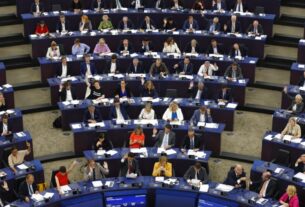NEW YORK, Oct. 17, 2025 — Mary Lawlor, UN Special Rapporteur on the situation of human rights defenders, has urged governments to end the repression of climate activists and instead recognize them as essential partners in addressing the climate emergency. Presenting her latest report to the UN General Assembly, Lawlor said that states are silencing “the exact people they should be working alongside.”
Rising Backlash Against Activists
Lawlor highlighted a global backlash against climate defenders, particularly in high-emitting countries and regions expanding fossil fuel infrastructure. She cited widespread use of criminalization, restrictions on peaceful assembly, police violence, and surveillance as tools to suppress activism.
The report emphasized that women, Indigenous defenders, and journalists face heightened risks, often experiencing discrimination, social stigma, and even fatal violence.
Examples of Support and Protection
While condemning repression, Lawlor also noted positive examples. Countries such as Brazil, Norway, and Slovenia have adopted legislation to protect human rights defenders and provided funding for NGOs engaged in climate advocacy. These measures, she said, demonstrate that governments can create safer environments for activism while advancing climate goals.
Human Rights at the Core of Climate Action
Lawlor stressed that effective climate action requires the protection of human rights, urging states to:
- Guarantee a safe environment for activists.
- Facilitate access to climate-related information.
- Ensure meaningful participation of defenders in decision-making processes.
“Repression of climate advocacy undermines the just transition we urgently need,” Lawlor told delegates, warning that excluding activists from climate negotiations weakens both policy and legitimacy.
Global Context
Her warning comes as climate-related disasters intensify worldwide, from glacier loss to catastrophic flooding. Despite international agreements such as the Paris Agreement and the Biodiversity Beyond National Jurisdiction Treaty, rights groups continue to criticize governments for sidelining activists at major forums, including the Conference of the Parties (COP).
Call to Action
Lawlor concluded that protecting climate defenders is not only a matter of justice but also a practical necessity for achieving effective climate solutions. “The climate crisis is a human rights crisis,” she said, calling on states to shift from repression to collaboration.
This article captures the UN’s warning on the repression of climate advocacy, the risks faced by defenders, and the urgent call for governments to integrate human rights protections into climate policy.
Excerpts from jurist.org article by Salma Ben Mariem | Faculty of Law and Political Science of Sousse, TN



